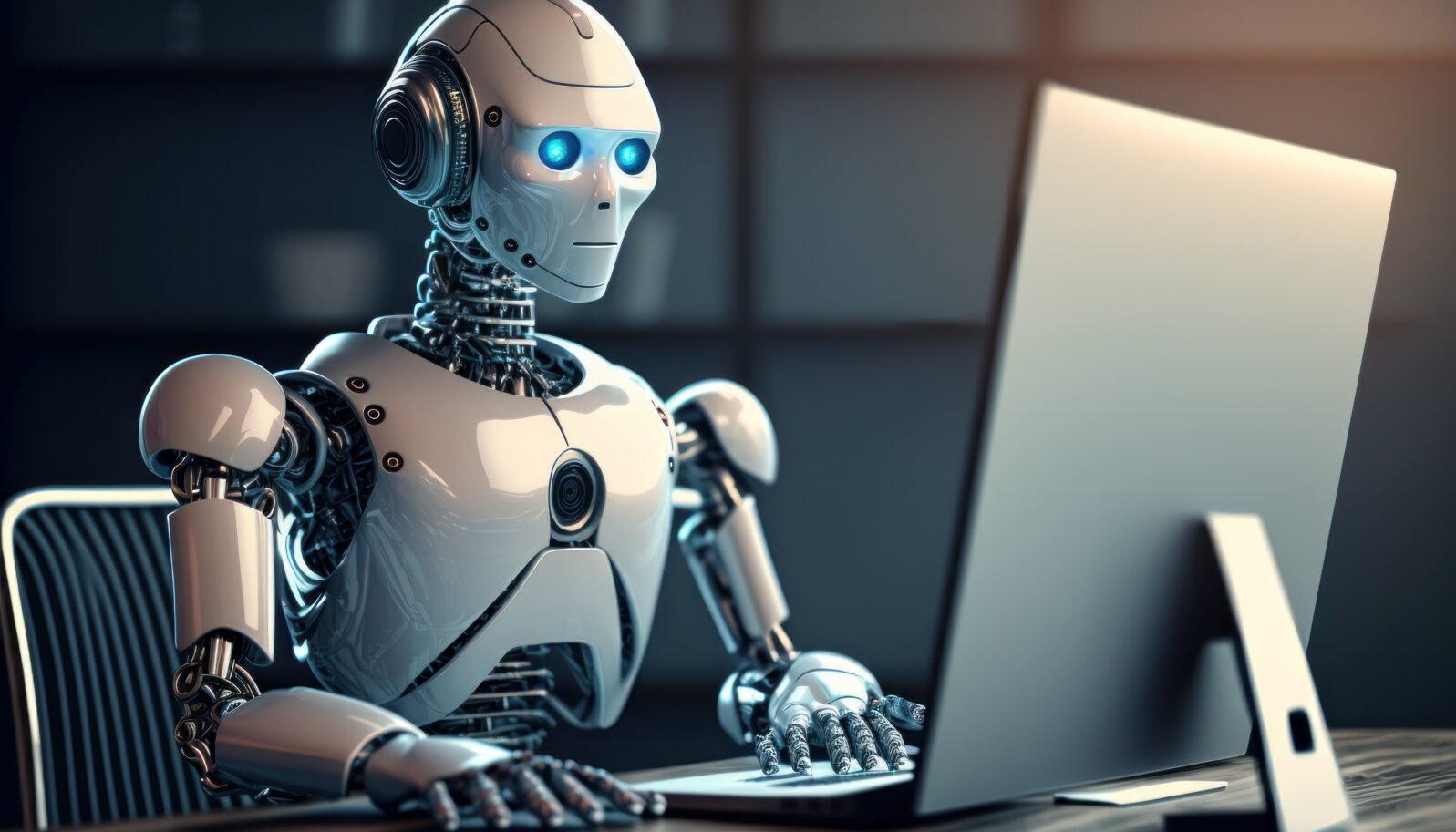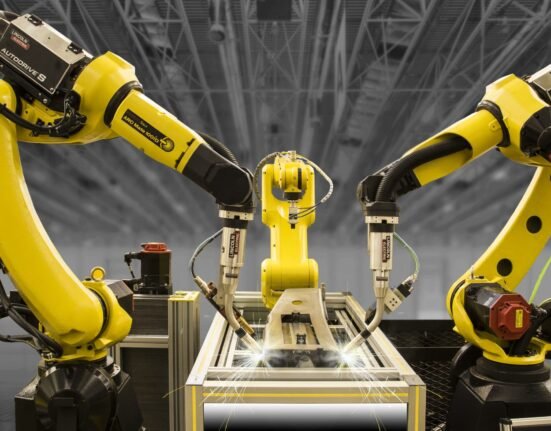In today’s rapidly evolving technological landscape, artificial intelligence (AI) is making headlines for its groundbreaking potential to revolutionize industries and improve our daily lives. However, as AI continues to advance, one of the most pressing concerns for workers worldwide is its potential to replace jobs. From engineers in the renewable energy sector to customer service representatives in retail, the impact of AI is far-reaching and undeniably transformative. For both professionals in developed nations and those facing energy challenges in developing countries like Nigeria, the question remains: Is your job next?
This article will dive deep into the complexities of AI’s role in the workforce, particularly within the energy sector, and how AI gadgets are both displacing traditional jobs and creating new opportunities. We’ll explore the interplay between AI and renewable energy, the potential consequences for the global workforce, and the steps individuals and industries can take to adapt and thrive in this new era.
The Rise of AI in the Workforce
Artificial intelligence has evolved at an unprecedented rate, expanding its reach from theoretical concepts to real-world applications. From self-driving cars to predictive analytics in healthcare, AI is proving to be an invaluable tool for increasing efficiency and accuracy. In sectors like energy, manufacturing, and even construction, AI-powered gadgets and systems are streamlining operations, optimizing production, and improving safety protocols.
However, the downside of this technological revolution is its potential to replace human jobs. Automation, driven by AI, is increasingly capable of performing tasks that once required skilled workers. In energy industries, for example, AI algorithms can now optimize energy production and consumption, reducing the need for manual labor in tasks such as monitoring grid stability, performing maintenance, or forecasting energy needs. This transformation is particularly relevant for those working in developing countries like Nigeria, where the energy sector is struggling to meet the demands of a growing population and an unreliable power grid.
As we look to the future, it’s important to ask: What impact will AI have on workers in these sectors?
AI in Energy and the Quest for Sustainable Solutions
One of the most promising applications of AI is in the field of renewable energy. AI’s ability to optimize energy production and reduce inefficiencies offers incredible potential to transform the energy landscape, especially in regions like Nigeria, where power shortages and unstable grids are prevalent.
In a country where energy access remains a significant challenge, AI-powered solutions such as smart grids, automated energy distribution systems, and solar-powered management tools can revolutionize the way electricity is produced, distributed, and consumed. Imagine a world where AI algorithms can predict energy consumption patterns, allocate power more efficiently, and even detect system faults before they cause outages. This could dramatically reduce the frequency of blackouts, enhance the reliability of energy delivery, and lower costs for both consumers and businesses.
In developed regions like the U.S. and Europe, AI is being used to optimize wind and solar power generation, predict energy needs, and balance supply and demand in real-time. For workers in the renewable energy sector, AI presents a unique opportunity to increase efficiency and enhance the sustainability of energy systems. However, the rise of automation in these industries also raises questions about job displacement, as tasks once performed by humans are now being handled by AI.
AI Gadgets Replacing Jobs and the Future of Work: A Comprehensive Look
Artificial intelligence (AI) continues to reshape the landscape of global industries, and its potential to replace jobs is both a source of concern and excitement for many workers. While AI has revolutionized the way businesses operate by boosting efficiency and productivity, its rapid rise has led to significant shifts in the labor market. In particular, AI gadgets and technologies are steadily replacing traditional roles, automating tasks that were once done by humans.
In this article, we will explore the various AI gadgets that are replacing jobs across different sectors and the specific roles that are most vulnerable to this automation. Additionally, we’ll look at the implications for workers, the industries most affected, and the opportunities AI presents for those willing to adapt.
AI Gadgets Replacing Jobs
- AI-Powered Chatbots
- Role Replacement: Customer service representatives
- How It Works: AI-powered chatbots and virtual assistants can handle customer inquiries, complaints, and provide product recommendations, often more efficiently and at any time of day. These systems are becoming more sophisticated, using natural language processing (NLP) to simulate human conversation.
- Impact: Many customer service roles are being replaced by chatbots, especially in industries like e-commerce, banking, and telecommunications. The cost-effectiveness and 24/7 availability make chatbots a preferred choice for businesses aiming to cut costs.
- AI Robotics in Manufacturing
- Role Replacement: Assembly line workers, machine operators, and factory laborers
- How It Works: AI-driven robots are capable of performing tasks such as assembling products, quality control, and even packaging. These robots can work tirelessly, without breaks, and with high precision, thus reducing the need for human workers on assembly lines.
- Impact: Manufacturing jobs that require repetitive tasks, such as assembly line positions or machine operation, are increasingly being replaced by robots. Industries like automotive, electronics, and consumer goods are seeing large-scale automation.
- AI-Powered Data Entry Systems
- Role Replacement: Data entry clerks, administrative assistants
- How It Works: AI can now extract, process, and input data with minimal human intervention. With the ability to scan documents, recognize patterns, and input data into systems, AI has significantly reduced the need for human data entry.
- Impact: Jobs involving repetitive data management tasks, such as inputting information into spreadsheets, customer databases, or administrative systems, are being automated by AI tools. This is especially true in industries like finance, healthcare, and logistics.
- Autonomous Vehicles and Drones
- Role Replacement: Truck drivers, delivery drivers, and taxi drivers
- How It Works: AI-driven autonomous vehicles, including trucks, delivery vans, and drones, are revolutionizing the transportation industry. These vehicles are capable of navigating roads, delivering packages, and even offering rides without human drivers.
- Impact: With the rise of autonomous vehicles, jobs that involve driving and logistics are at risk. Truck drivers, delivery drivers, and even taxi drivers may see their roles replaced by AI-powered vehicles in the coming years.
- AI-Powered Financial Advisors
- Role Replacement: Financial advisors, wealth managers
- How It Works: AI is increasingly being used to provide personalized financial advice, using complex algorithms to analyze market trends, assess risk, and create tailored investment portfolios for individuals and businesses.
- Impact: Many financial advisory services are moving toward AI-driven platforms that can predict market movements and make investment recommendations. As a result, traditional roles in wealth management and financial advisory are becoming automated, with AI providing more cost-effective, data-driven solutions.
- AI-Based Content Creation Tools
- Role Replacement: Writers, journalists, content creators
- How It Works: AI-powered tools are now capable of generating written content, such as news articles, blog posts, and product descriptions. These tools use machine learning to analyze data, trends, and even the tone of the content, allowing them to create articles that are engaging and informative.
- Impact: Jobs in journalism, content writing, and copywriting are being increasingly replaced by AI-powered content generators. In particular, industries like digital marketing, e-commerce, and media are adopting these technologies to reduce costs and increase content production speed.
- AI in Healthcare: Diagnostic Tools
- Role Replacement: Radiologists, diagnostic technicians
- How It Works: AI-powered diagnostic tools, such as those used in radiology, can analyze medical images, detect abnormalities, and even suggest diagnoses. These tools are trained on large datasets to spot patterns in medical data that might be missed by human doctors.
- Impact: As AI tools become more advanced, they are taking over roles in medical imaging and diagnostics, reducing the need for human radiologists and technicians. AI systems are already capable of diagnosing diseases like cancer and heart conditions more accurately and faster than humans in some cases.
- AI-Powered HR Tools
- Role Replacement: Recruiters, HR assistants, and hiring managers
- How It Works: AI is increasingly being used in recruitment and human resources to streamline the hiring process. AI tools can sift through resumes, conduct initial interviews via chatbots, and even evaluate candidates based on their responses and qualifications.
- Impact: Many traditional HR roles, such as recruiters and hiring managers, are being automated by AI-powered tools that can assess candidates more quickly and efficiently. The result is a reduction in human involvement in initial stages of hiring.
The Jobs AI Is Replacing
AI is impacting a wide range of job roles across various industries, with a particular focus on repetitive, manual tasks. Some of the key jobs that AI is replacing include:
- Customer Service Representatives – Replaced by AI chatbots and virtual assistants
- Manufacturing Workers – Replaced by AI-powered robotics and automated assembly lines
- Data Entry Clerks – Replaced by AI-driven data processing systems
- Truck and Delivery Drivers – Replaced by autonomous vehicles and drones
- Financial Advisors – Replaced by AI-based investment platforms
- Writers and Journalists – Replaced by AI content creation tools
- Radiologists – Replaced by AI diagnostic tools in medical imaging
- HR Professionals – Replaced by AI-driven recruitment platforms
Preparing for the AI-Driven Future
As AI continues to advance, workers must adapt to the changing landscape. The fear of job loss is real, but so is the potential for new opportunities to emerge. Upskilling and reskilling are crucial for remaining relevant in an AI-driven world. Understanding how AI works, integrating it into existing workflows, and embracing the changes AI brings will be key to thriving in the future workforce.
The solution isn’t to fight AI but to learn how to coexist with it. For those working in industries such as energy, technology, and construction, embracing AI as a tool to enhance their skills, productivity, and impact is the way forward. By doing so, workers can continue to contribute meaningfully in their roles while leveraging AI to innovate and optimize industries like never before.
The Changing Job Market: Will AI Replace Your Job?
As AI continues to advance, many professionals in various sectors fear that their jobs may soon be replaced by machines. In the energy sector, this fear is palpable. For instance, jobs related to the maintenance of power grids, energy production, and even administrative tasks in energy firms are being increasingly automated. In regions like Nigeria, where many energy workers face unstable employment due to power supply issues, AI could be both a boon and a threat.
However, it’s important to understand that AI doesn’t necessarily eliminate jobs—it transforms them. In fact, AI creates new opportunities for workers to shift into roles that require higher levels of expertise and creativity. For engineers, technologists, and construction professionals, AI can serve as a powerful tool to enhance their productivity, automate repetitive tasks, and focus on more strategic decision-making.
For instance, in the construction and energy sectors, engineers who understand both AI and renewable energy solutions are poised to lead the way in creating smarter, more efficient infrastructure. AI doesn’t replace the need for human creativity and innovation; rather, it amplifies it by automating tedious tasks and allowing professionals to focus on high-value work that requires problem-solving and critical thinking.
Preparing for the AI Future: Upskilling and Adaptation
While the potential for AI to displace certain jobs is real, it is also important to recognize that this shift presents an opportunity for workers to adapt and develop new skills that are in high demand. As the AI revolution continues to unfold, there will be an increasing need for professionals who can work alongside AI systems to design, implement, and manage these technologies. This is where upskilling and continuous learning become crucial.
For engineers, technologists, and other professionals in the energy sector, understanding the intersection of AI and renewable energy will be key to securing long-term career success. Workers must embrace the evolving technological landscape and seek out training in areas such as data analytics, machine learning, and AI integration. By doing so, they position themselves as valuable contributors to the future of energy and technology.
In developing countries like Nigeria, the adoption of AI may be slower due to infrastructure limitations, but the potential for leapfrogging traditional energy solutions is immense. By focusing on renewable energy and AI-powered technologies like solar grids and battery storage, countries with energy challenges can skip over outdated, inefficient systems and embrace the future of smart energy solutions.
Embracing the AI-Driven Future of Energy and Innovation
The AI revolution is here, and it is transforming industries at an astonishing pace. While it may replace some jobs, it also holds the promise of creating new opportunities that were previously unimaginable. For those working in energy, construction, and technology sectors, the key to success lies in adapting to this shift by embracing AI as a tool that enhances productivity, fosters innovation, and promotes sustainability.
The future of energy lies in the hands of those who are willing to understand and integrate AI technologies into their work. Whether in Nigeria, the U.S., or Europe, professionals who are ready to upskill, innovate, and collaborate will lead the charge toward a more efficient, sustainable, and AI-driven world.
Ready to shape the future of energy and innovation? Join the conversation at epci.ng, your go-to platform for everything related to engineering, procurement, construction, and industrial technology. Together, we can drive the future of energy, AI, and beyond. Follow and connect with us on Facebook, Instagram, X (Twitter), LinkedIn







Leave feedback about this